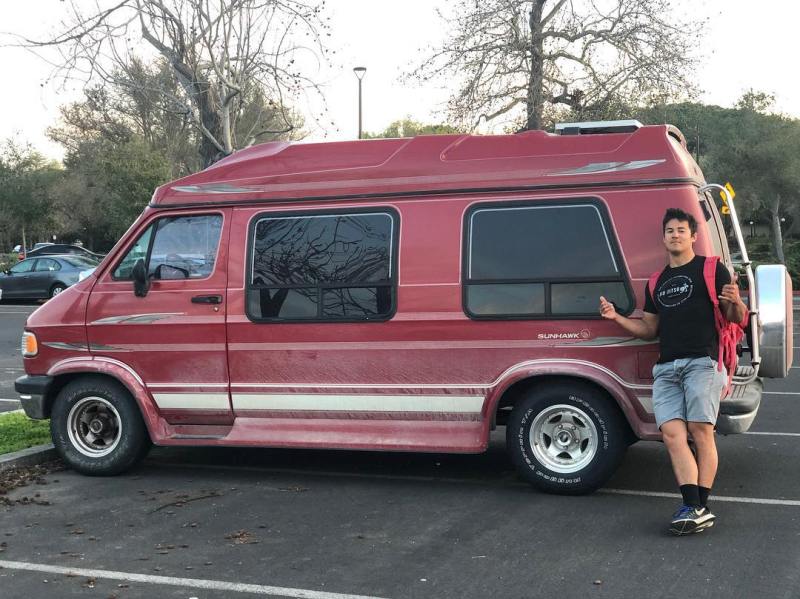I took off winter quarter last year to live out of a van and hike. Why? Well, there is an oscillatory pattern at Stanford I’m sure you’re familiar with. Each quarter begins with a burst of energy; we churn out p-sets at Coho, aggressively party with friends three nights a week and sign up for new clubs “outside our comfort zones” at the Activities Fair. Inevitably, a few weeks later we’ve dropped those clubs, scrape through our classes with the bare minimum of work and spend our afternoons alternating between napping and Youtube videos, surrounded by old dining hall food and dirty laundry (or maybe that’s just me). This decline into survival mode happened earlier and earlier over the course of my Stanford experience; week eight turned into week six, turned into week four. One day early in junior fall, as I made my daily dining hall-to-bed rotation I found myself wondering: where did I go wrong? If this trend continued, I’d be spending my senior year in a permanent haze of food, naps and memes. I needed to break out of this spiral; hence, the van trip.
There are some logistics to living in a van. I bought a 1996 Dodge Ram, named it Shelly and spent winter break converting it into a cozy home-on-wheels. It’s important to make the interior of your van very clean; this is what will determine whether your friends see you as quirky or a secret serial killer. When Shelly comes up in conversation, the most common question I get is, “Where did you go number two?” followed closely by, “How often did you shower?” To answer the first, any populated area in America has an abundance of restrooms. Walmart, gas stations, libraries and ranger stations are all good options. If you’re not in a populated area? Well, nobody will be around to see you dig a hole in the ground. As for showers, they’re harder to find. Let’s just say you take what you can get. Anyway. Besides a keen nose for clean bathrooms, living in a van taught me the value of two things that we generally avoid on campus: being alone and doing nothing.
Being alone and doing nothing gives us a chance to think. Alone means no interactions, including mental ones (reading someone’s blog, listening to the news, watching TV). Life is about doing things you find fulfilling, and it can be hard to find those things amid the noise of other opinions, news articles and Netflix. This was pretty hard for me at first. At the beginning of my trip I barely made it two days before falling apart and rushing into the nearest town. But gradually, I was able to stretch that time out to three days, then six, then 10, then 14. It’s not meditation, exactly, in the sense that I wasn’t “emptying my mind.” Rather, by spending time in solitude doing nothing (or walking, which leaves the mind free) I was able to work through difficult conversations with myself, something I was able to avoid on campus.
Doing nothing also helped me realize I had fallen into a sunk cost fallacy on campus. Before the trip I thought being surrounded by opportunities meant I had to pursue them all. Or, in other words, I had to “get my money’s worth.” At the beginning of each oscillatory cycle, the fresh burst of energy coming off of break, I signed up for everything I could. This isn’t necessarily bad; trying out different things to see what you like is a great way to expand horizons. But if maintaining too much causes you to crash and enter survival mode, you might end up neglecting the activities you really do want to do. Spending time alone changed my mindset changed from one of indulgence to one of self-optimization.
This is not to say you should spend all your time on campus sitting in your room doing nothing, alone and bored. Far from it. We’re here to make long-lasting friendships and learn and do meaningful things for society. But the next time you feel overwhelmed and hit survival mode week three, try spending some time alone with nothing to do. Point yourself in the right direction before you start running again. Or who knows, maybe move into a van.
Contact Tai Kao-Sowa at tkaosowa ‘at’ stanford.edu.
